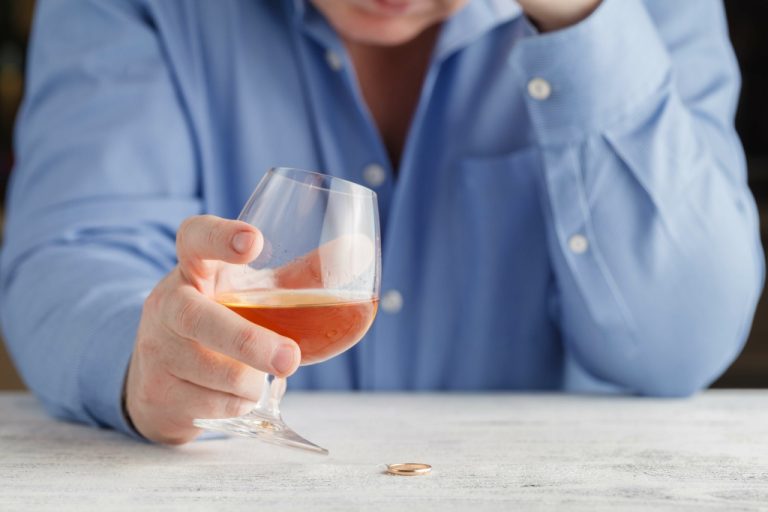Identity shifts from “trying not to drink” to “doesn’t drink” happen gradually. This transformation feels liberating because sobriety becomes natural rather than constant effort. Calculate previous weekly alcohol spending and track money saved. Many people discover they spent thousands annually on alcohol. Redirect savings toward gym memberships, hobbies, travel, or debt reduction.

Explore Your Treatment Options

It’s one of the things that all recovering alcoholics warn you about. Sobriety terrified me, but ruining my life scared me more. I did it, but I wish someone had warned me about the emotional challenges I’d face when I quit drinking. You’re afraid that if you stop drinking, you’ll miss out on a great social life.
Figure out what scares you about getting sober
Using alcohol frequently or consistently increases your blood pressure, leading to an increased risk of heart disease and stroke. If physical symptoms last beyond seven days, they will generally be over sometime in the middle of week two. After the intense physical strain of withdrawal, people will often be fatigued. Non-physical symptoms, like cravings and desire for the comfort alcohol provides, may become more noticeable as the distraction of physical symptoms subsides.
Admit that you’re afraid

You’re not just quitting drinking; you’re building a life that doesn’t need it to fill any voids. If you feel like you need medical detox to help you stop drinking alcohol, then you understand you are more than a casual drinker and likely have an AUD. It is very wise to seek medical assistance to detox to prevent harmful complications. In addition, alcohol use can adversely affect your personal, professional, academic, and social abilities. It is time to seek help for an AUD if you are avoiding activities due to misusing alcohol, have lost or broken relationships, or cannot perform duties due to your drinking. You’ve been drawn to this page for a reason – perhaps you’re dependent on alcohol or justwant to change your drinking habits and cut back.
As you begin to notice those health benefits, you’ll likely feel more energized and inspired to keep up your progress. Tell trusted family and friends about your plan to quit or cut back on alcohol. When those around you are in the know, it can help them know not to offer you drinks. It may even help if you spend time with other nondrinkers for a while so you can support each other. Giving up alcohol can have a significant impact on your mental health, especially if you’ve been using alcohol as a coping mechanism.
Fortunately, on December 19, 2016, I got off that hamster wheel for good. Forbes Health adheres to strict editorial integrity standards. To the best of our knowledge, all content is accurate as of the date posted, though offers contained herein may no longer be available.
On the morning of Dec 23, 2013, after another night of heavy drinking and reckless behavior, I finally admitted to myself that I had a drinking problem. One study found that attitude-related barriers were the most common obstacle that people face before entering treatment for an alcohol use disorder. Whether it’s a friend, a therapist or a support group like AA, connection is key. If you don’t currently have someone in your life who understands the battle of addiction, there are people who do. Call a treatment provider today for free to explore your treatment options. Symptoms get worse as more alcohol leaves your system.
- Don’t use relapse as an excuse for extended consumption.
- The irony of this approach is that I often tried to drink away this fear to socialize more easily, and I arrogantly (and wrongly) believed that I was in control.
- Identify any potential barriers ahead of time—like social events or emotional triggers—and make a plan to handle them.
You can find professional support to stop drinking through rehab programs, counseling services, and recovery centers like True Self Recovery. Their personalized treatment plans, medical supervision, and therapy programs provide the guidance needed for long-term sobriety. Staying sober in social situations requires planning ahead, recognizing triggers, and finding alternatives to alcohol. Setting clear goals for sober events, informing friends of your decision, and having an exit strategy help reduce temptation. Holding a non-alcoholic drink, such as sparkling water or mocktails, minimizes pressure to drink. Engaging in physical activities and focusing on social connections rather than alcohol strengthens commitment.
- This post will show you how to take a break from booze so you can get your physical, emotional, and mental health in order.
- For women, heavy drinking means four or more drinks on any day or eight or more drinks per week.
- The best relapse prevention is staying busy, staying away from old drinking environments, and making sober friends.
- No content on this site, regardless of date, should ever be used as a substitute for direct medical advice from your doctor or other qualified clinician.
Why Is Addressing Underlying Mental Health Crucial for Success?
Some people think tapering can be a safer way to finally get your heavy alcohol use under control. But even if you try it, you may still have withdrawal symptoms. Your doctor may decide to order different tests, such as blood work or a heart test. These results can help them learn how alcohol has affected your body and identify any infections, injuries, or other health issues that need treatment. When the alcohol level in your system suddenly drops, your brain stays in this overactive state. For women, heavy drinking means four or more drinks on any day or eight or more drinks per week.
You may be at risk for symptoms of alcohol withdrawal if you stop drinking suddenly. If you are at risk, you will likely need to be under medical care while you stop drinking. Discuss this with your provider or alcohol counselor. If you’ve become dependent on alcohol, cutting it amphetamine addiction treatment out of your life may produce withdrawal symptoms, such as a rapid heartbeat, high blood pressure, sweating and shaking.
Especially in the early days, it is perfectly fine to say no to events and activities you would normally be all about. If your relationship is predicated entirely on going out and getting drunk together, this news might feel threatening or like a loss to them. That shouldn’t deter you from doing what’s best for you and your health. If that sounds overly optimistic and simple, you’re not entirely wrong. Sometimes things get messy, and that’s alcoholism what we’ll discuss next.
This allows them to support you in many situations, whether that means meeting up at alcohol-free locations or not offering you a drink when you come over. Similarly, this allows you to not worry about keeping alcohol around for guests, as they know your https://beige-gazelle-970790.hostingersite.com/2025/10/08/why-alcoholism-is-a-chronic-disease-the-science/ home is an alcohol-free space. Making the decision to stop drinking is the necessary first step towards sobriety, but creating a plan on how to do so is the second. Having a plan could mean slowly cutting back the number of drinks you have per week until you reach zero.
0 Comments